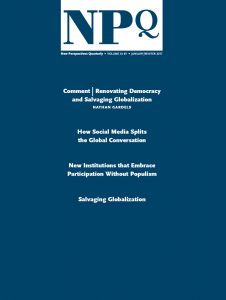Social Class, Social Mobility and English Elite Universities
Elizabeth M. Lee’s article Elite Colleges and Socioeconomic Status (Lee, 2013) in September’s Sociology Compass is a sophisticated exploration of why elite colleges’ demographics remain “largely homogenous across generations”. The UK also exhibits this, seemingly, symptom of a malfunctioning meritocracy. Former Prime Minister Sir John Major described Britain’s lack of social mobility as “truly shocking” and the current Foreign Secretary called it “disturbing” . It’s easy to see why; the upper echelons of our politics and culture are dominated by...






1475-682X/asset/akdkey.jpg?v=1&s=eef6c6a27a6d15977bc8f9cc0c7bc7fbe54a32de)
1754-9469/asset/society_affiliation_image.gif?v=1&s=9197a1a6ba8c381665ecbf311eae8aca348fe8aa)